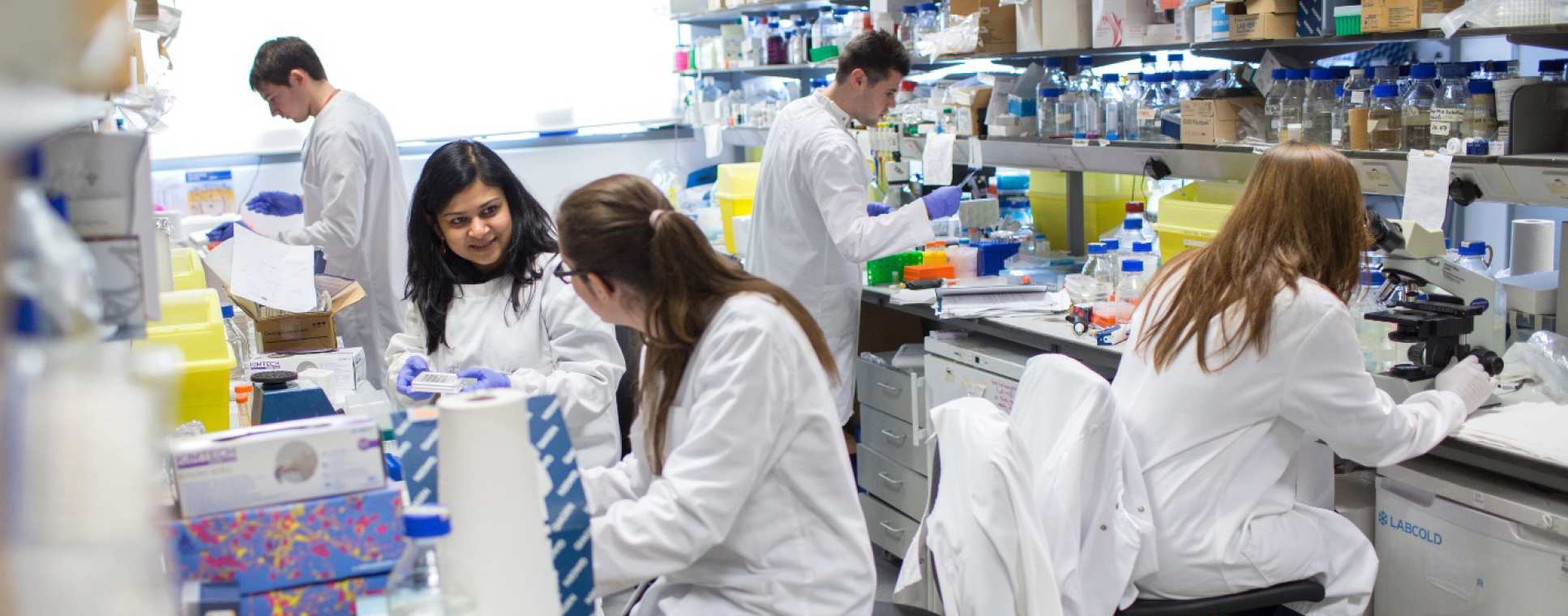Student profiles

Ben Bleasdale
PhD registration October 2010 – January 2015
I arrived at Imperial having studied Biochemistry, followed by a stint working in a lab in the United States. Arriving in London, the MRC Imperial DTP studentship gave me the flexibility to find a PhD project that suited both my previous experience and future hopes for a career in virology research. Throughout my project, the College encouraged and supported my professional development, both in and outside of the lab - including regular outreach activities to let me take my work into neighbourhood schools. I was also fortunate enough to be selected by the MRC to spend three months as an intern at the Academy of Medical Sciences, learning how scientists and science can contribute to shaping policy in Whitehall. Building on this range of experiences, I hope to continue with a career in academic research whilst still indulging my enjoyment for science communication.
Lucy Garvey
MD registration 2008 – 2011
I completed an MD Degree at Imperial College, investigating the central nervous system manifestations of HIV in the antiretroviral era. This degree incorporated a number of clinical studies which used cognitive assessments, cerebral magnetic resonance spectroscopy, and positron emission tomography to evaluate the effects of diseases (HIV and hepatitis C) and antiretrovirals on the brain. Many of these studies have been published.
Since graduating I have completed my specialist clinical training and obtained a Consultant Physician HIV/GU Medicine post at the Jefferiss Wing, St. Mary’s Hospital, Imperial Healthcare NHS Trust. Within this role, I am involved in recruiting patients for a number of HIV and GU clinical trials and am on the steering committee of the POPPY study, a national MRC study to evaluate the effects of ageing in HIV populations.
I registered for an MD in Sept 2008, submitted my thesis Dec 2011, was awarded my degree in May 2012, and I graduated in May 2013. My thesis was on the Clinical Epidemiology of HIV-associated tuberculosis in Khayelitsha, a Cape Town township with a high HIV/TB burden.
Stephen Holland
PhD registration 2007 – 2011
Case study provided by supervisor, Professor Julian Dyson
Stephen gained a 1st Class BSc (Dundee). His PhD continued his MRes project with Professor Julian Dyson (Hammersmith Campus), developing a high throughput in vivo mutagenesis approach for studying immune receptors. Stephen worked relentlessly to establish this technically challenging platform which was applied to demonstrate that the germline complementarity determining regions of the T cell receptor are not required for engagement with MHC molecules (Holland et al PNAS [2012] 109 E3111). This work was highlighted by two investigators in F1000 Prime.
Stephen was interested in learning about the support of science and successfully applied for the Wellcome Trust funded 3‐month Academy of Sciences Medical internship working in the Policy Department.
He presented his work at conferences in the Unites States and at the 2010 BSI Congress, where his abstract was selected for oral presentation and awarded runner-up ‘Young Scientist of the Year’. He was awarded a post-doctoral fellowship to study the role of the thymus-like organ of Lamprey with Professor Thomas Boehm at the Max‐Planck Institute for Immunobiology and Epigenetics.


